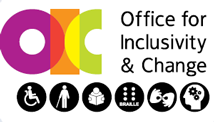
|

|

|
Diversity Programme
Recent research indicates that self-identifying students on UCT’s campus require support services that do not reinforce hegemonic norms but help to create enabling environments for students who may have concerns, experience distress or question their gender and/or sexuality. The lived experiences of self-identifying students required a review of services that limited the opportunity for explicit forms of violence and discrimination, as well as the subtle or silent exclusions that result in micro-aggressions against self-identifying students.
Fourteen South African universities were accepted into a funded three-year programme to focus on service and institutional systems enhancement. UCT focused on developing capacity within existing structures, expanding services and creating new spaces that increased visibility of the institution’s programme. Using a theoretical framework and research from sub-Saharan Africa, best practice was adapted from other MSM-LGBQTIA campus programmes, to expand the reach of services to students who would not ordinarily utilise the available network of support in the institution.
Sexualities Policy
A sexualities policy has been developed that proposes reframing the institutional culture of UCT.
The policy recognises the institutional role in the provision of equal access to university administrative, academic and support services for all students and staff and contains the minimum standards and guidelines that govern interaction by UCT entities, staff and students in relation to gender identity and sexual diversity. It aims to ensure consistency in engagement and create an environment that represents the inclusivity of UCT.
The policy further recognises the potential for the conduct of UCT entities, staff and students within the borders of UCT, to re-inscribe heteronormative practices that, if left unchecked, delegitimize the lived realities of staff and students on campus. The policy sets out guidelines for the appropriate use of terminology in teaching praxis, communication, health care and administrative services at UCT. The policy encourages good practice in order to protect and govern UCT entities, staff and students with guidelines for teaching praxis, communication, administration and health care.
The Sexualities Policy was adopted by UCT Council in December 2017.
Inclusivity Policy for Sexual Orientation up and running
The University of Cape Town’s (UCT) ground-breaking new policy to tackle discrimination on the basis of sexual orientation, ratified last December, is officially up and running following a recent public launch. The policy aims to facilitate a campus environment for staff and students that is free from discrimination in all spheres, including teaching content and language, the university’s code of conduct, and culture.
